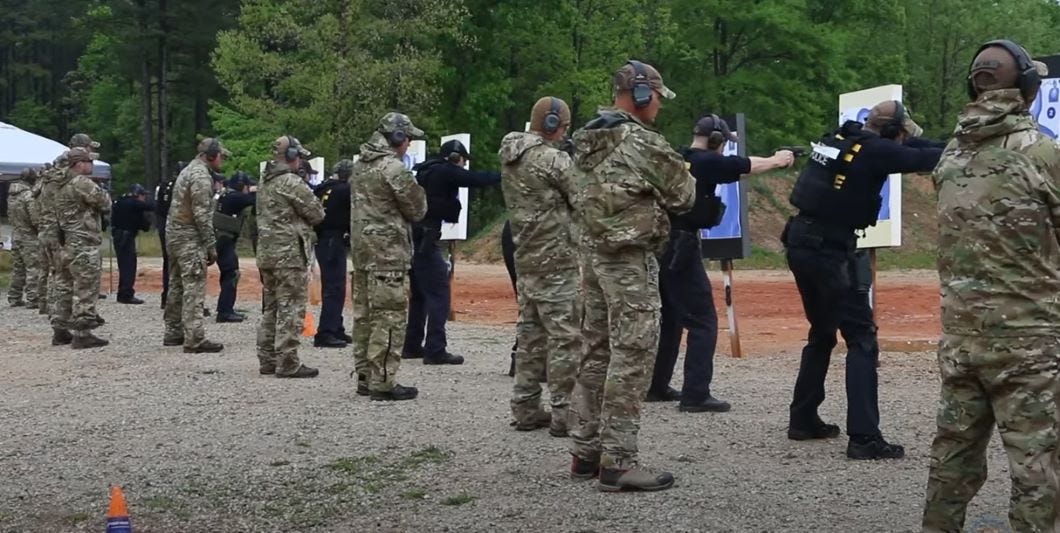Call Your Reps Now – Tell them to vote “NO” on the extension of warrantless government surveillance.
Buried in the Section 702 reauthorization bill (RISAA) passed by the House on Friday is the biggest expansion of domestic surveillance since the Patriot Act. Senator Wyden calls this power “terrifying,” and he’s right. 2/25
twitter.com/RonWyden/statu…
This bill represents one of the most dramatic and terrifying expansions of government surveillance authority in history. I will do everything in my power to stop it from passing in the Senate.
I’ll explain how this new power works. Under current law, the government can compel “electronic communications service providers” that have direct access to communications to assist the NSA in conducting Section 702 surveillance. 3/25
In practice, that means companies like Verizon and Google must turn over the communications of the targets of Section 702 surveillance. (The targets must be foreigners overseas, although the communications can—and do—include communications with Americans.) 4/25
Through a seemingly innocuous change to the definition of “electronic communications surveillance provider,” an amendment offered by House intel committee (HPSCI) leaders and passed by the House vastly expands the universe of entities that can be compelled to assist the NSA. 5/25
If the bill becomes law, any company or individual that provides ANY service whatsoever may be forced to assist in NSA surveillance, as long as they have access to equipment on which communications are transmitted or stored—such as routers, servers, cell towers, etc. 6/25
That sweeps in an enormous range of U.S. businesses that provide wifi to their customers and therefore have access to equipment on which communications transit. Barber shops, laundromats, fitness centers, hardware stores, dentist’s offices… the list goes on and on. 7/25
It also includes commercial landlords that rent out the office space where tens of millions of Americans go to work every day—offices of journalists, lawyers, nonprofits, financial advisors, health care providers, and more. 8/25
When the amendment was first unveiled, one of the FISA Court amici took the highly unusual step of sounding a public alarm. Civil liberties advocates noted that the provision would encompass hotels, libraries, and coffee shops. 9/25
zwillgen.com/law-enforcemen…
zwillgen.com/law-enforcemen…
House Intelligence Committee FISA “Reform” Bill Would Greatly Expand the Class of Businesses and…
The version HPSCI leaders offered Friday therefore exempts… hotels, library shops, and coffee shops, plus a handful of other establishments. But as the FISA Court amicus promptly pointed out, the vast majority of U.S. businesses remain fair game. 10/25
zwillgen.com/law-enforcemen…
zwillgen.com/law-enforcemen…
FISA 702 Reauthorization Amendments: The Second Time is Not the Charm
The amendment even extends to service providers who come into our homes. House cleaners, plumbers, people performing repairs, and IT services providers have access to laptops and routers inside our homes and could be forced to serve as surrogate spies. 11/25
None of these people or businesses would be allowed to tell anyone about the assistance they were compelled to provide. They would be under a gag order, and they would face heavy penalties if they failed to comply with it. 12/25
That’s not even the worst part. Unlike Google and Verizon, most of these businesses and individuals lack the ability to isolate and turn over a target’s communications. So they would be required to give the NSA access to the equipment itself… 13/25
…or to use techniques or devices (presumably provided by the NSA) to copy and turn over entire communications streams and/or repositories of stored communications, which would inevitably include vast quantities of wholly domestic communications. 14/25
The NSA, having wholesale access to domestic communications on an unprecedented scale, would then be on the “honor system” to pull out and retain only the communications of approved foreign targets. (Let that sink in.) 15/25
HPSCI leaders deny that the administration has any intent to use this provision so broadly. Supposedly, there is a single type of service provider that the government wants to rope in. But they didn’t want anyone to know what that service provider was… 16/25
…so they hid the real goal by writing the amendment as broadly and vaguely as possible. But no worries, Americans! The administration isn’t actually going to USE all the power it just persuaded the House to give it. 17/25
I cannot overstate how mindblowingly irresponsible that is. I don’t think *any* administration should be trusted with an Orwellian power like this one. But even if *this* administration doesn’t plan to make full use of it… (Go ahead and fill in the blank.) 18/25
There are certain powers a government should not have in a democracy. The ability to force ordinary businesses and individuals to serve as surrogate spies is one of them. Even if the targets are supposed to be foreigners, a power this sweeping WILL be abused. 19/25
By the way, when a privacy advocate tried to get
@Jim Himes 🇺🇸🇺🇦 to engage on this issue, here is the thoughtful and conscientious reply given by the ranking member of HPSCI, a man who clearly cares deeply about civil liberties. 20/25
twitter.com/jahimes/status…
You do that. But life is really too short to engage with people who need to use bombastic absurdities like “Stasi-like”. Yes I know exactly what is in there. Some of it is classified. And none of it is remotely “Stasi-like”. Sell your nonsense elsewhere.
The Senate MUST stop this train before it is too late. The Senate is scheduled to vote on the House-passed bill this week. If there’s an opportunity to remove this provision, senators should remove it. If not, they should vote against the bill. 21/25
The White House will tell senators they have no choice other than to pass the House bill, because Section 702 expires on April 19, and trying to fix the House bill—or pass different legislation—would take too long. But the April 19 deadline exists only on paper. 22/25
The administration has already obtained FISA Court approval to continue Section 702 surveillance until April 2025. According to the administration itself, that approval “grandfathers” surveillance for a full year, even if Section 702 expires. 23/25
news.bgov.com/bloomberg-gove…
news.bgov.com/bloomberg-gove…
FISA Court Approves One-Year Extension of Surveillance Power
A notional deadline is no reason to create a surveillance state. The Senate must take the time to get this right. It’s not just our civil liberties that are at stake—it’s our democracy.
@Michael Bennet @SenatorBooker @Sherrod Brown @Senator Laphonza Butler @Sen. Maria Cantwell… 24/25
 ATF Agents qualify with handguns during the two-week course to become member of ATF’s Special Response Team. (Screenshot courtesy ATF.gov)
ATF Agents qualify with handguns during the two-week course to become member of ATF’s Special Response Team. (Screenshot courtesy ATF.gov)


